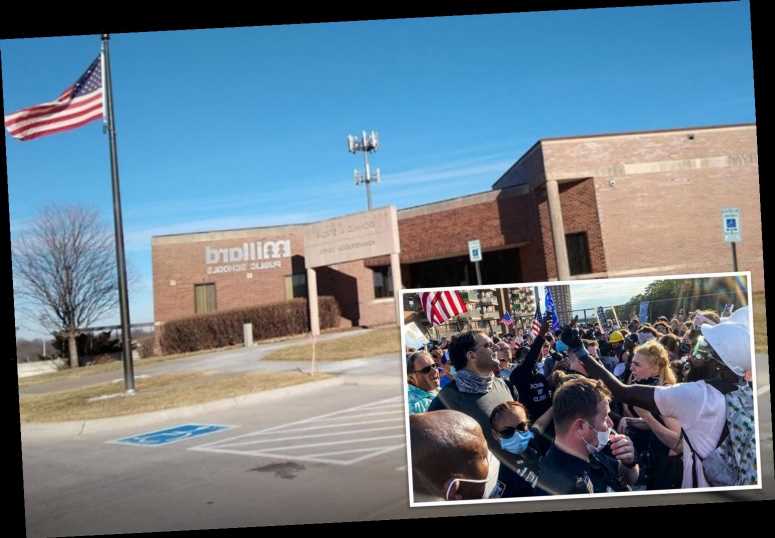IN AN effort to be more conscious of racial disparities, one school district is having administrators read "White Fragility," a book that theorizes about why white people struggle to talk about race.
Reading the book is one of several initiatives administrators of Millard Public Schools, in Omaha, Nebraska, are implementing to try and improve race relations.
The decision to make some changes comes after widespread protests calling for racial equality erupted across the US, sparked by the police killing of George Floyd and other Black Americans.
District officials have set up student diversity councils to advise leaders at the high school and district levels, according to the Omaha World-Herald.
Officials told the Herald that they want to be more receptive to concerns about race issues. About 70 administrators, including principles and assistant principals in the district, will read the book White Fragility: Why It's So Hard For White People to Talk About Racism by Robin DiAngelo this fall.
The book, which was published in 2018, is being looked at with renewed scrutiny as the national conversation has shifted to systematic racism in the US. DiAngelo has received both incredible praise and heavy criticism for her claims that white people in America are "racially illiterate," and her theories about why.
DiAngelo suggests that white people get defensive about racism because Americans live in a society that is designed to shield them from racial discomfort.
While a New Yorker review credits DiAngelo's book with "[holding] racism in its place," a recent Washington Post review criticizes its "binary" approach to race relations.
"Even as it introduces a memorable concept, 'White Fragility' presents oversimplified arguments that are self-fulfilling, even self-serving," the Post said.
Despite the book's mixed criticism, Millard administrators will read it and participate in a book study to discuss it, according to the Herald.
A spokewoman for the district, Rebecca Kleeman, said officials are "engaging in conversations around this just like our community is."
"As educators, we read books. Our leadership wants to learn about different viewpoints," she added.
Source: Read Full Article




